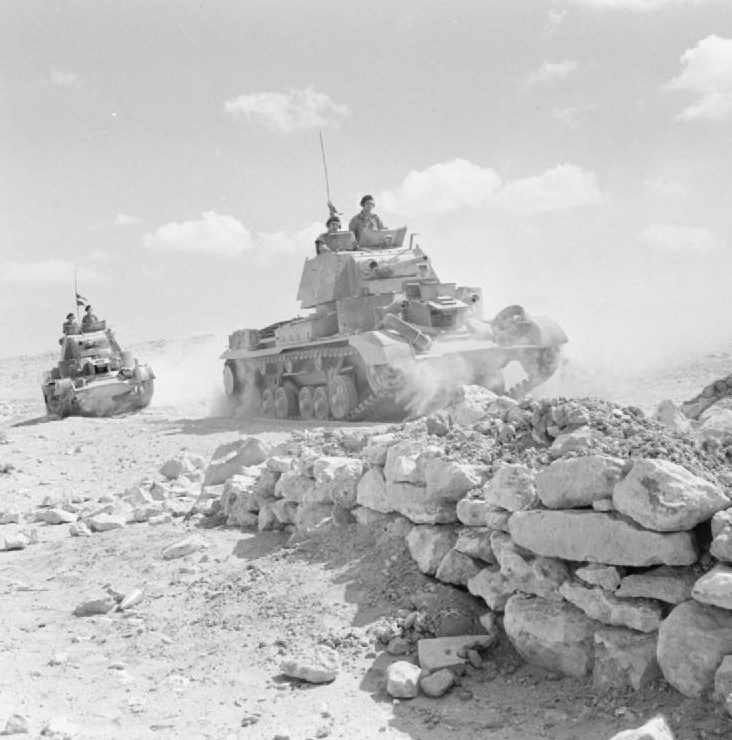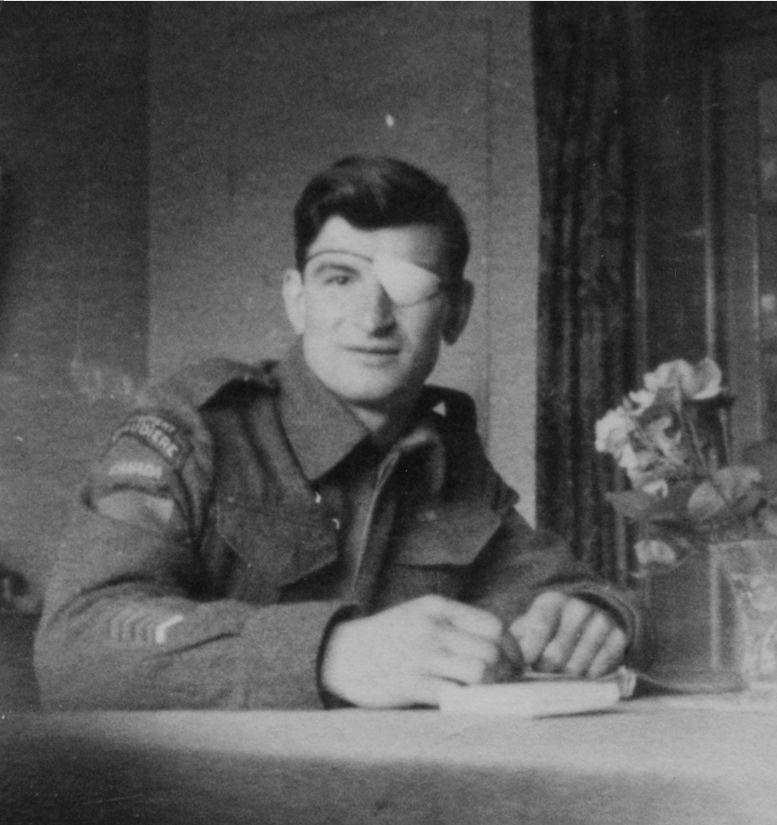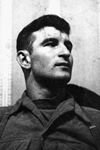I Was There! - We Sang as the Germans Shelled Us at Calais
The War Illustrated, Volume 5, No. 112, Page 286, November 20, 1941.
Of the heroic garrison of 4,000 under Brigadier Nicholson which defended Calais in May 1940 (see page 627, Vol. II) only 47 escaped. Here are the first-hand stories of some of these officers and men.
I landed in Calais on Thursday, May 23 (said Rifleman David Hosington, D.C.M., a 35-year-old Cardiff reservist of the King's Royal Rifles). We were told that the Germans were only seven miles away, but we did not believe it, and took it as a joke. We soon found it was true. I was with a half company of 60 other ranks and two officers who were holding a canal.
I saw my first German at about four o'clock on the Friday morning. He was a member of a small reconnaissance party which loomed in the darkness on a road a few hundred yards away. I waited breathlessly, holding my fire while they loitered for five or ten minutes. Then, when they turned to retreat, I let them have it with a Bren gun. They all fell flat, but one was wounded and three others were brought in later as prisoners.
On Friday evening we were told to retire, and we occupied a large hotel adjoining the post office, from which we could command three streets. There was a great deal of sniping going on, chiefly by Fifth Columnists, most of whom seemed to be wearing blue coats and flannel trousers.
Towards lunch-time on Saturday there was a lull in the German shelling and dive-bombing, which had been almost uninterrupted, and I saw a German officer, accompanied by a French officer as guide, going to the headquarters of Brigadier Nicholson, who commanded the Calais force, with a white flag. He had come to ask us to surrender, but he got the right answer.
We expected then to be blown to bits by the German artillery, having no artillery of our own, and the only thing we hoped for was that "Jerry" might run out of ammunition. So we left one or two sentries at the top windows of the hotel and retired to a cellar. Then, when the bombardment began, we hot some beer and a piano and had a sing-song. We sang "Roll out the barrel" and many other songs – there was nothing else to do.
Then the Germans began to send light tanks down the road between the blazing houses. We fired at them with anti-tank rifles with good effect. Next morning I was sniping from an upper window and I saw the Germans only 200 yards away. It was a good shoot.
At this time a duel developed between a British destroyer in the harbour and the German artillery. It was good think they were getting something back.
More German dive-bombing started, and they must have been bombing their own troops, for the town was full of them. Later in the day we abandoned the hotel, and there was a general retirement towards the docks. It was carried out in perfect order, the men helping one another. We had hardly five rounds of ammunition apiece, but we had a few bombs, and occasionally went off to bomb out some of the Fifth Columnists who still pestered us with their sniping.
We blew up everything we could. Then we could retire no farther – the Germans were in front of us and behind us. We were out of ammunition. It was all over.
Major D. Talbot, Royal West Kent Regiment, who was brigade major to Brigadier Nicholson, described the last moments in the citadel, where the garrison consisted of some French, a party of marines sent out specially from England, and some units of searchlight men, A.A. gunners, and others who had mustered in Calais. He said:
Headquarters were in a bastion under one of the sandy 20-ft. walls of the citadel. Few of the defenders had had much sleep for six days and they had had scratch meals of biscuits and bully beef. There was little water. Then our radio and telephone communications were hit. We got no news from Dunkirk – but kept in touch by radio with England.
Dive-bombing had been going on all day without intermission. We knew little of what was happening outside. Then at four o'clock on Sunday afternoon an officer rushed in to say that the Germans were in the citadel. I do not know exactly what had happened. We ran out to find that the Germans were on top of the walls with grenades in their hands. It was the end of resistance.
A young lance-corporal in the Rifle Brigade described how the wounded were picked up by the Navy while the Germans were shelling Calais harbour. He said:
We were lying in the dressing-station, feeling there was no chance of a ship getting through to us, when, travelling at top speed, two naval speed-boats appeared. They completed a circle of the harbour before coming alongside the quay. Two naval ratings climbed out of the launches and, throwing away their cigarettes, said calmly: "Who wants a lift? Our minesweeper is waiting outside, gentlemen."
During the next half-hour British and French soldiers who could still walk loaded the more seriously wounded into the launches. Firing from near-by cranes and warehouses, hidden German snipers waited until we appeared on the wharf with a stretcher. Then they let loose, and it is a wonder any of us escaped. When the launches were loaded until they were dangerously low in the water we set out to sea, through the barrage of German shell fire. In the end we were picked up by the minesweeper. Even then we were still in danger. Four dive-bombers tried to sink us, and the last dropped a bomb ten feet from the bows, which stopped the engine and split a plate on the starboard side. However, the engineers got the engines going again and we all crowded to the port side to keep the vessel on an even keel. – "Daily Telegraph" and "Evening News"
Previous and next article from I Was There!
I Was There! - Outnumbered, We Captured a Nazi Tank
Typical of small-scale encounters between British and German troops in Libya was the following incident, in which a captain and 44 men of a famous rifle regiment were engaged. Telling of his succes
I Was There! - 'Your Bren Gun Carrier Shot Up My Car'
First German general to be captured by the British in this war was General von Ravenstein, Commander of the 21st German Panzer Division, who was "put in the bag" in the course of the battle outside To
Index
Previous article
Off for a 'Cruise' in Tobruk's Perimeter
Desert patrol in the Tobruk area is carried out by cruiser tanks such as that seen above, among others. Most of the officers and men who form the crews of these tanks have taken part in the war in L
Next article
'This Most Important and Timely Action'
On November 9, two days before the anniversary of the Battle of Taranto, a patrolling force of British naval units annihilated two convoys of enemy supply ships. The first enemy convoy, consisting of






